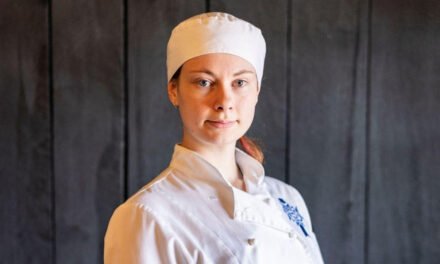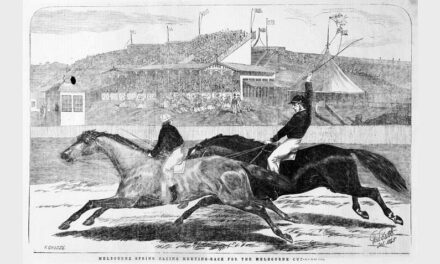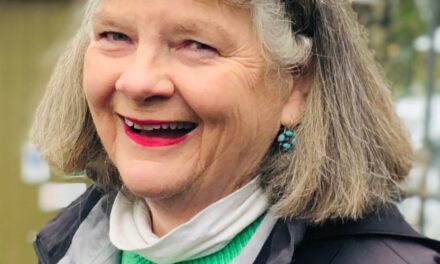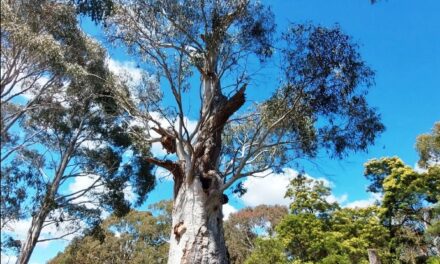Raquel Stevens
Suddenly the weather has turned, autumn rains have arrived, and I have these incredible red mushrooms springing to life in my garden.
For years fungi have had a bad rap. However, according to ecologist, Alison Pouliot, we are seeing a ‘fungal awakening’.
The nature lover spends her life on autumn auto pilot between the northern and southern hemispheres. I am extremely envious when she reveals she has missed 25 consecutive winters in Daylesford.
Really, 25 in a row. I want your life.
I know, I do love winter though. Particularly in Daylesford.
How did your fascination with fungi begin?
By crawling around in the bush and noticing their beautiful and bizarre forms. But it wasn’t just fungi. It was all life forms. I was fascinated with all of them and how they fit together and make ecosystems function.
What is the biggest misconception about fungi?
That there’s good and bad fungi. All fungi are good. Some are just bad for humans to eat. Others are considered bad if they wreak havoc in a crop or garden. But the fungus is usually not the bad guy here. They’re often scapegoated as a cause, rather than an effect of bigger things happening that can lead to an ecosystem being out of whack (often through poor management).
What brought you to Daylesford?
Trees. The Wombat Forest. The fact that I could stand on Jackson’s Lookout and see trees all around me, 360 degrees. There are few rural towns in Australia where you can do that.
Describe your secret spot in Daylesford.
There’s many, and they’re not secret. The Wombat is full of enchanting gullies and dells and stunning spots, although VicForests is doing its best to destroy many of them.
You were destined for a music career, what happened?
When I was leaving school, I had the opportunity to go to the con, to the conservatory and do music. I loved music. I still do.
Then I suddenly realised I’d be spending eight hours a day indoors. And I just couldn’t imagine that. If you’re practising, playing professionally as a musician, your life is very indoors. You’re rehearsing, you’re recording, you’re performing.
And I didn’t want this indoor life.
What is the best advice anyone ever gave you?
It might sound hackneyed, but it was to follow my passions.
Sent off to Wombat State Forest for the rest of your eternal life, what 3 items would you take?
My curiosity, my imagination, and my loupe.
What would the title of your memoir be?
I’m not really one for leaving traces, so it’s not something I’ve ever considered.
Any advice to fungus fans planning to go foraging soon?
If you’re foraging for edible mushrooms, make sure you’re aware of their Doppelgänger or toxic lookalike species. Focus on just a few species. Remember that it’s always better to know a few species thoroughly than many species superficially. And it’s always better to leave an edible mushroom uneaten, than to consume a toxic one.
And make sure you’re on private property (with permission) as – unlike in the USA or Europe – it’s illegal to forage on public land in Australia. And enjoy every moment of being out there in the bush!
I have these beautiful red mushrooms appearing in my garden, what are they?
These mushrooms are fly agarics (Amanita muscaria), the classic fairy tale mushroom, that grow in association with pine and European broadleaved trees, but now also considered an ‘aggressive invader’ in Australia as they have naturalised with native beech here.
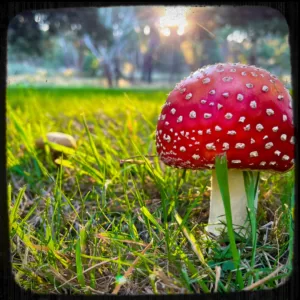
Absolutely, and I think that’s part of the reason why some people have held them with great malign because we know they have a great suite of chemicals including things like psychotropics, so hallucinogenic compounds, some of them have deadly toxins, some of them have chemicals that cause them to glow in the dark.
We’re really in what I call a ‘fungal turn’ where a lot of those myths and fears, we finally seem to be getting beyond those to look at them with more curiosity and imagination.
You run a series of workshops, what type of people do you attract?
20 years ago, it was pretty much foragers, or your field naturalists. Now I get such a suite of people, I have bioengineers, I have fashion designers.
I’ve had lots of filmmakers come along, a dance choreographer, I’ve even had a crime fiction writer.
You have released a new book ‘Underground Lovers’. What was the inspiration?
The last couple of decades I’ve been trying to get fungi onto the conservation agenda because they haven’t been part of biodiversity conservation in Australia or really in many places in the world.
They’re kind of connective tissue of the soil in a sense. And they’re actually linking up ecosystems.
So, if we are serious about trying to regenerate a damaged environment without looking at the fungi, it’s kind of flawed.
What’s next for Alison Pouliot?
A big autumn of events across the country, then to the US and Europe for the northern hemisphere autumn to spend time with the fungi there.
Describe yourself in a sentence.
A blip in space and time like the rest of us . . .
Each year Alison holds workshops and events in regional Victoria and metropolitan Melbourne. See her website for details. https://alisonpouliot.com
Raquel Stevens is a former Network Ten News Journalist. She has been a part time local for more than 25 years, and one day hopes to be a full time local.
Related Stories:
Underground Lovers – Alison Pouliot Book Launch


